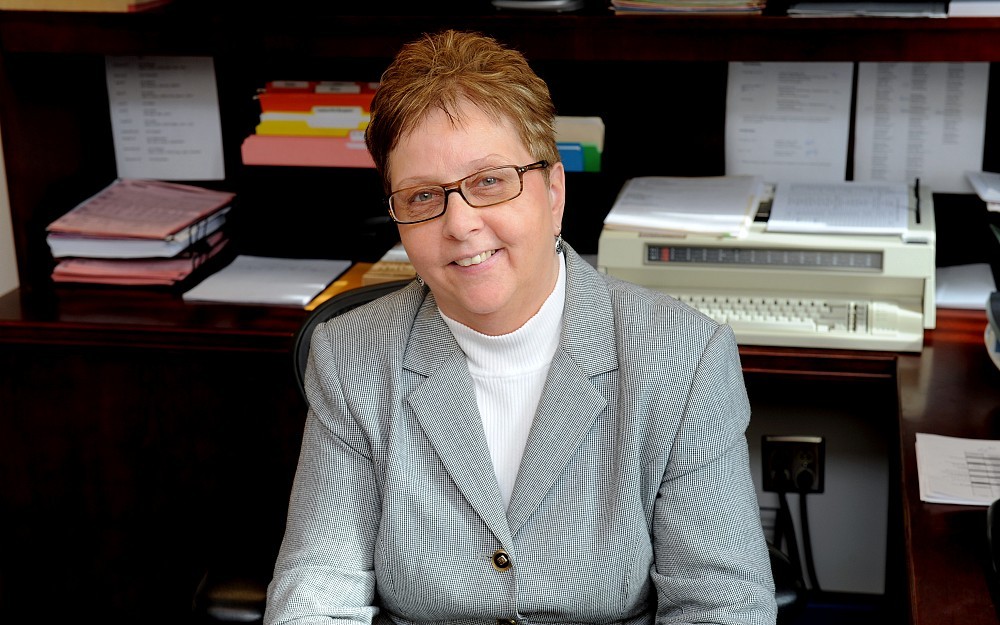
Focus On Staff With Linda Holbrook
In her role as the executive assistant to the chair of the department of anesthesiology, Linda Holbrook supports the chairman, but also the physicians and researchers who work to save lives so their patients can be survivors.
But over the last two years, Holbrook has worked toward supporting a different kind of survivor: those who either walked away from or lost family and friends in the two plane crashes that occurred at the Greater Cincinnati/Northern Kentucky International Airport in 1965 and 1967. Holbrook belongs to a volunteer group who created a memorial, which was dedicated in November 2011, but the group still works together to enhance the memorial site.
"Our group has been so honored to meet the survivors of these crashes along with families of the victims."
Any additional spare time, she says, is spent reading. The last book she read, "was a compelling story that interweaves history and medicine," titled "Destiny of the Republic: A Tale of Madness, Medicine, and the Murder of a President," by Candice Millard. The book recounts the story of James Garfields brief presidency, and his assassinationa shooting that resulted in his death three months later.
Holbrook's career at UC, she says, has put her in a position to learn and grow.
When did you come to UC?
I joined the department of surgery chairmans office in 1998, and I was fortunate to work with a wonderful group of people who taught me a great deal about working in an academic environment and institution (when I started here, I did not even know what a mail location was!).
How did your employment progress?
After a couple of years in the department of surgery and a great many valuable experiences, I moved to the chairmans office in the department of anesthesiology where I worked for Phillip Bridenbaugh, MD, and three years later, for William Hurford, MD, who is the current chair.
What would you tell a new employee about what it means to work for an Academic Health Center?
I would tell them to be ready to work hard and work smart because working for an AHC requires both. Working here means that you have wonderful opportunities to contribute to an important institution and to work in an intellectual and challenging environment. It means having a meaningful role in the day-to-day operations of your department. The pace is fast, the co-workers supportive, and the learning curve boundless.
What makes your role as executive assistant in the department of anesthesiology different than in other departments?
Having only worked in two departments, Im not sure these particular two departments are vastly different. Both departments revolve around the operating rooms and environs. Both positions involve working closely with the chairman to accomplish goals for his department.
What stands out to you as an important personal aspect of your position?
There is not a day that goes by that I do not learn something new. My experiences here have truly been a progression, or as they say, a "rite of passage. I have had so many mentors, and I am grateful for their patience and support through the years.
Tags
Related Stories
From flight nurse aspirations to health care innovation: Meet...
April 30, 2024
We can thank flight nurses to Bachelor of Science in Nursing, Class of ’97 alumnus Nick Dobrzelecki’s interest in nursing. More than 30 years since making that decision, Dobrzelecki has not yet flown as a nurse, but has impacted the health care industry on many fronts.
Spectrum News: Student-led organization empowers patients with...
April 29, 2024
Spectrum News highlighted the work of UC student Mallika Desai and the student group Parkinson's Together that takes a multidisciplinary approach to meeting the needs of patients with Parkinson's disease in their community.
$13.5 million from Hugh H. Hoffman estate supports ALS research...
April 29, 2024
A $13.5 million gift from the estate of Hugh H. Hoffman, MBA ’63, will revolutionize research and patient care related to amyotrophic lateral sclerosis (ALS) at the ALS Multidisciplinary Clinic at the University of Cincinnati Gardner Neuroscience Institute.
